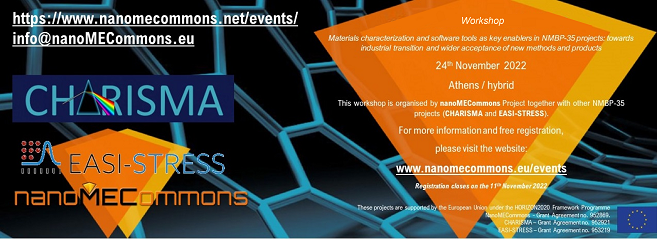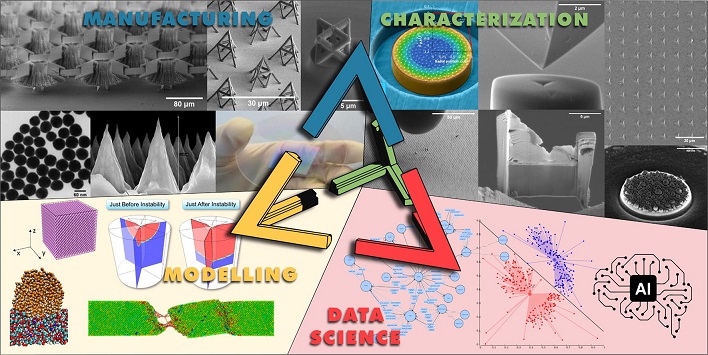NMBP-35 Horizon 2020 Projects NanoMECommons, Charisma, and Easi-stress will co-host a hybrid Workshop event and would like to invite you to join in person!
Workshop Title
Materials characterization and software tools as key enablers in NMBP-35 projects: Towards industrial transition and wider acceptance of new methods and products
Date and Location
The workshop will be held on Thursday the 24th November 2022, as a hybrid event (Athens/online), and is supported by European Materials Characterisation Council (EMCC).
Thematic Areas
The outcomes of the workshop will be used for an Open Consultation Process, by identifying the community needs in accordance with EC directives and EMCC objectives in three key thematic areas:
- Characterization/
Standardization - Suites of multi-scale/AI modelling and characterization
- Materials 2030 Roadmap: Characterization and modelling as horizontal enablers
Registration and Agenda
Registration Deadline: 11th November 2022
Agenda: Please find further Information via our websites.
Cost: Free, but registration is required!
EMCC Contact
Join us in EMCC fostering collaboration.
For further questions about the workshop, please contact us at emcc@characterisation.eu

